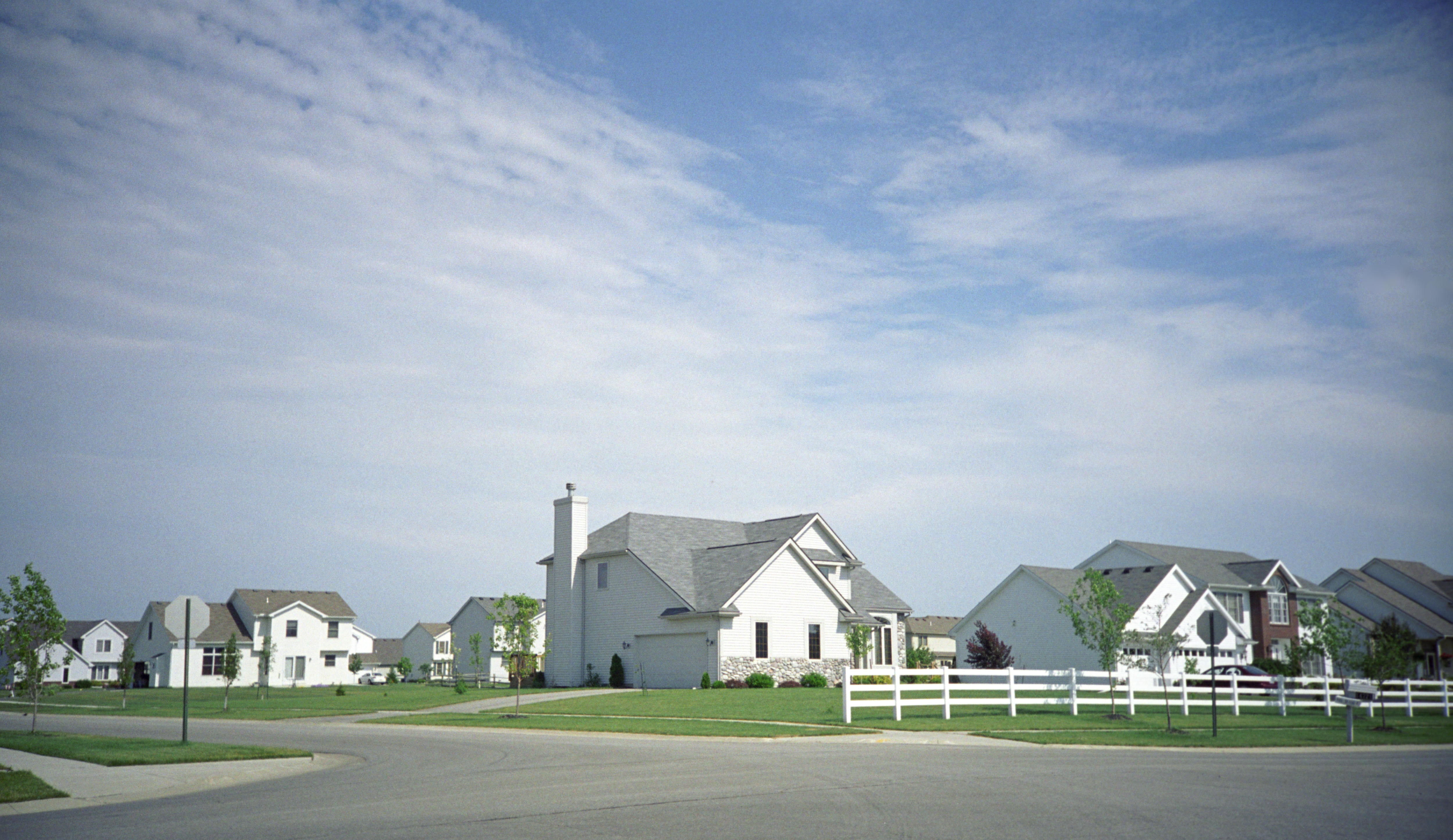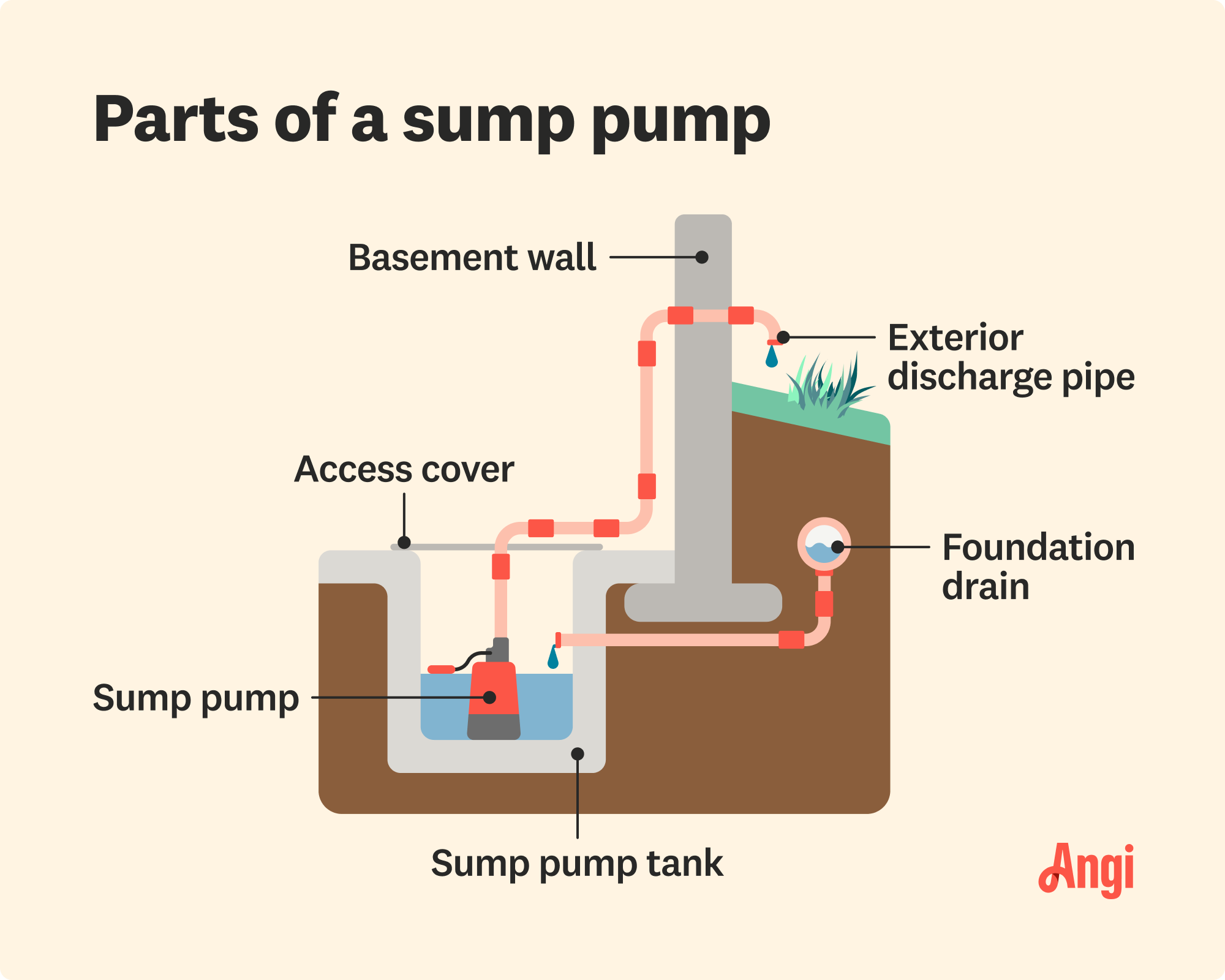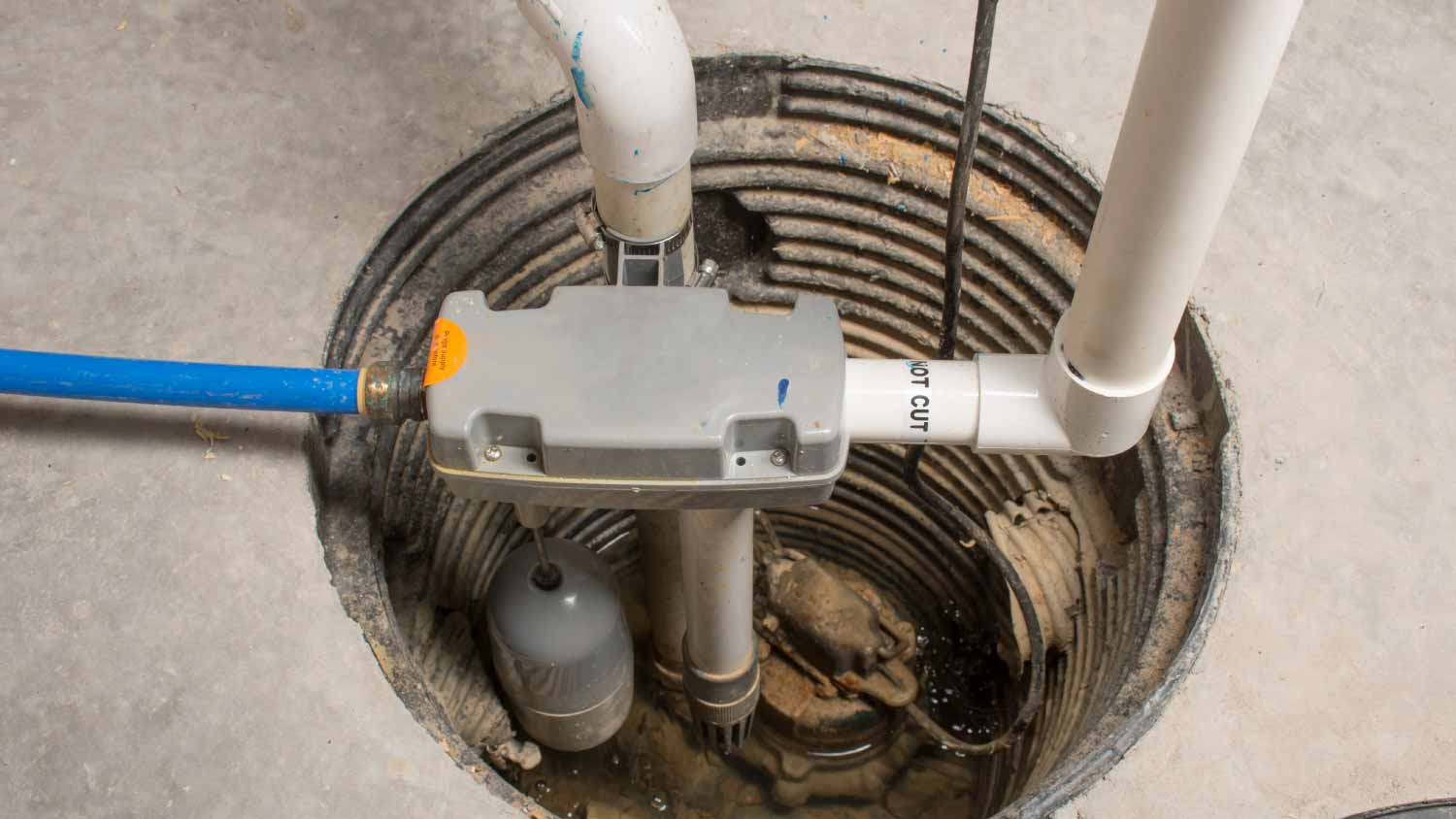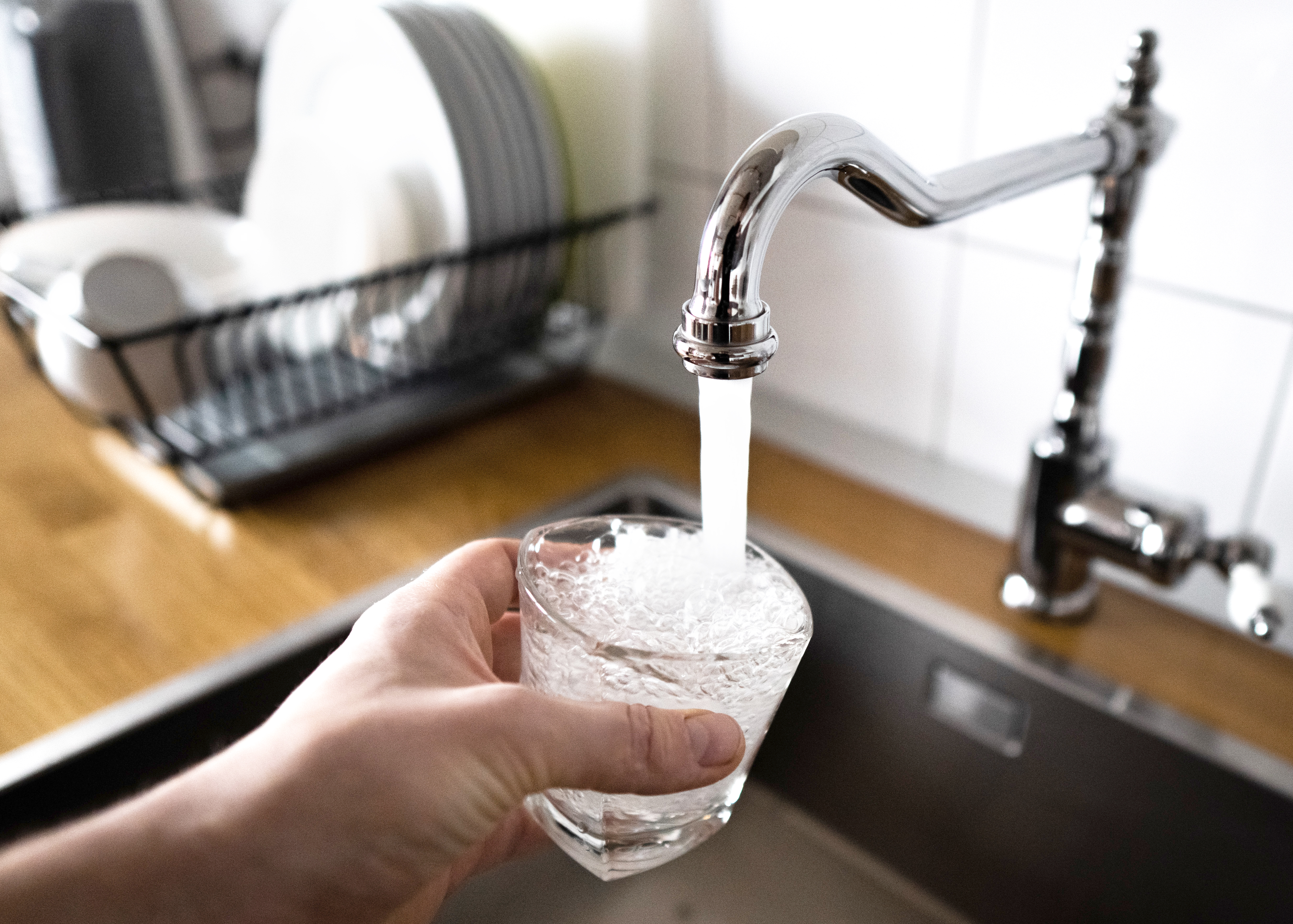
Discover the leading factors affecting your main water line replacement cost in Columbus, including length, material selection, and installation details.
Here's how to react to a sump pump alarm


The most common cause of sump pump alarms going off is power failure.
High water levels also trigger sump pump alarms.
If your sump pump has a clog, the alarm will be triggered because the pump will struggle to drain water quickly.
Recurring sump pump alarms could mean that you have a faulty or aging sump pump that needs to be replaced.
Your sump pump alarm going off causes instant panic if you're one of the many people who live in the Midwest, a coastal region, or a floodplain area. After all, a faltering pump could mean flooding or water damage in your home. Sump pump alarms generally go off when water within your sump container reaches the 6-inch mark below the lid. However, there could be a variety of reasons behind why your alarm has been triggered. Here's what to do when the sump pump alarm goes off.

Sump pump alarms are usually triggered by strong rainstorms. Anyone with a sump pump knows the feeling of being awakened in the middle of the night by beeping whenever heavy rainstorms pelt the roof and siding. However, some more obscure reasons could also be in play. If you're having recurring sump pump alarm issues, it might be best to talk to someone who installs sump pumps. Here are the top reasons why your sump pump alarm is probably beeping.
A power interruption is the most common reason why sump pump alarms go off. If you're in a storm, wind or lightning could knock out the power to your home. Even a momentary outage could disrupt your pump's ability to control water levels. This will trigger your alarm. Having a battery-powered backup or power generator is highly recommended in homes with sump pumps.
Sump pump alarms are triggered when there's flooding danger in the basement. This is why they're most likely to go off during storms or periods of heavy rain. Your pump may be struggling to keep up with the amount of rainwater coming in. While not as common, a sump pump alarm could be triggered by water accumulation in your basement caused by a plumbing failure.
It's possible that your alarm is going off because your sump pump is clogged with debris or grime. While the buried nature of sump pumps can make inspecting for debris difficult, you should look for two specific signs. First, clogged sump pumps often make odd grinding sounds. You may also notice that water is draining much slower than usual. The best way to prevent a sump pump clog is to keep up with regular maintenance.
What kind of sump pump alarm do you have? Sump pump systems can have high-water alarms or low-water alarms. High-water alarms provide early detection. That means they're much more likely to go off even though there's no need to panic.
Your sump pump alarm going off could be a sign that your sump pump is old or failing. How long do sump pumps last? A sump pump can generally last for a decade if it's maintained properly. Here are some signs that it's time for a replacement:
Visible rust
Strong vibrations while the pump is running
The pump is continuously running
There's no water in your sump pit

It's always good to be familiar with the workings of your sump pump for those times when an alarm takes you by surprise. However, some causes of a sump pump alarm going off can only be handled by professionals. Here's a guide to what to do when you hear beeping coming from the sump pump.
Loss of power to the sump pump is the top cause of sump pump alarms going off. Check the power source to confirm that your sump pump's outlet has power. If you notice that power is missing, you can try resetting the breaker. If you're unable to restore power to the outlet, the sump pump can be plugged into a working outlet temporarily using an extension cord. The faulty outlet will then need to be repaired by an electrician.
If the sump pump is tripping a breaker when plugged in, this is a sign of a pump failure or jam.
Check the float switch if you suspect your sump pump alarm is going off because of rising water levels. The float switch's role is to detect high water levels. It's actually the feature that triggers the alarm.
To find your sump pump's float switch, look for a small, buoyant object within the sump pit. Next, manually lift the float switch in order to mimic a rising water level. If the pump activates in response, this means the float switch is operating normally. If the pump doesn't activate, this could mean a stuck or broken float switch.
This tip should not be done in place of actually investigating or addressing the cause of your sump pump alarm going off. If you've addressed the alarm trigger, you can reset the sump pump alarm to make it silent. Here's what the process looks like on most sump pump alarms:
Locate your sump pump system's control panel.
Find the alarm reset button.
Press and hold the button for a few seconds.
Once the alarm has been silenced, be sure to observe the pump for a while to make sure it's operating normally.
Troubleshooting sump pump problems isn't always easy. If your sump pump alarm is going off persistently, it's best to have your sump pump checked out by a pro. You should also bring in a pro to look at your pump if you're experiencing frequent clogs or inconsistent performance during periods of heavy rains. A local sump pump installation company will be able to diagnose and fix sump pump issues before the next rainstorm brings in too much water for your struggling sump pump to handle. If it turns out you need a new pump, the average sump pump replacement cost is between $308 and $748.
From average costs to expert advice, get all the answers you need to get your job done.

Discover the leading factors affecting your main water line replacement cost in Columbus, including length, material selection, and installation details.

Learn about main water line repair costs in Columbus and what affects pricing to be prepared before you start getting estimates.

Learn how much plumbers cost in Columbus, Ohio. Discover pricing for faucet repairs, pipe work, and emergency services, plus how you can save money.

If your faucet hasn’t been working like it used to, you might need a replacement. Here’s how to replace a kitchen faucet like a plumbing pro.

Discover grey water system cost details to learn about installation, maintenance, and ways to save on your home’s grey water system.

Finding frozen pipes involves using all of your senses to listen for, smell, and see the signs. Keep reading to learn how to find frozen pipes in your home.